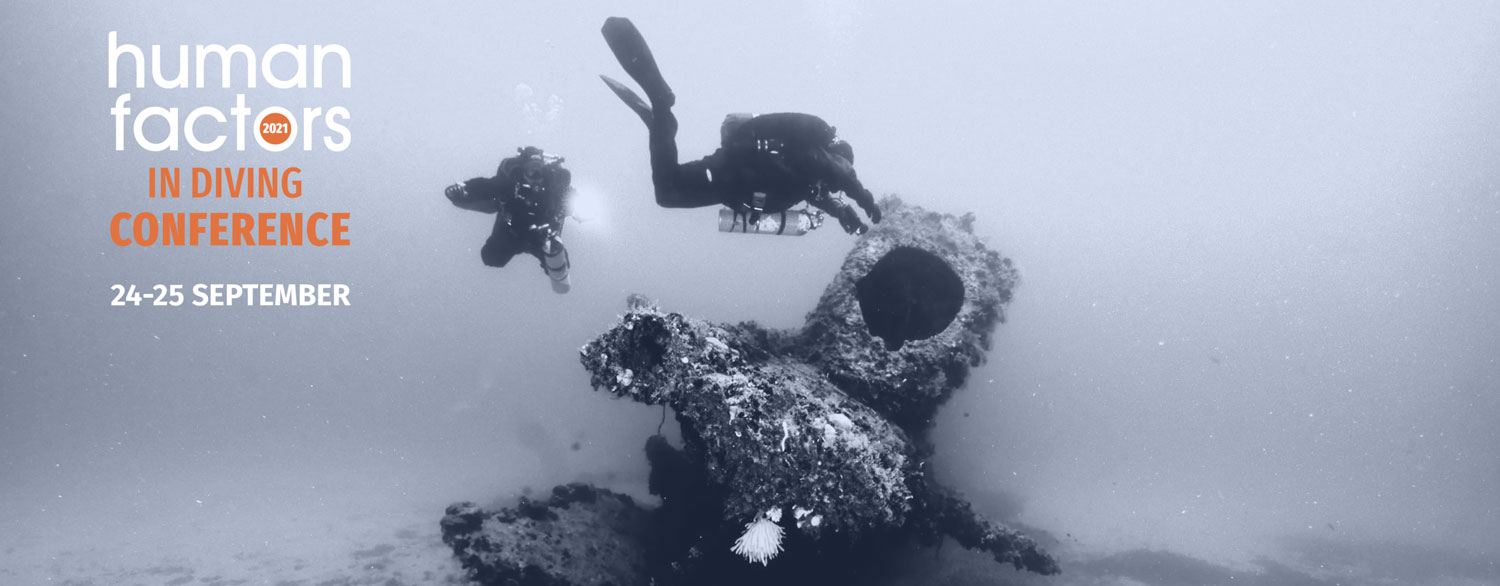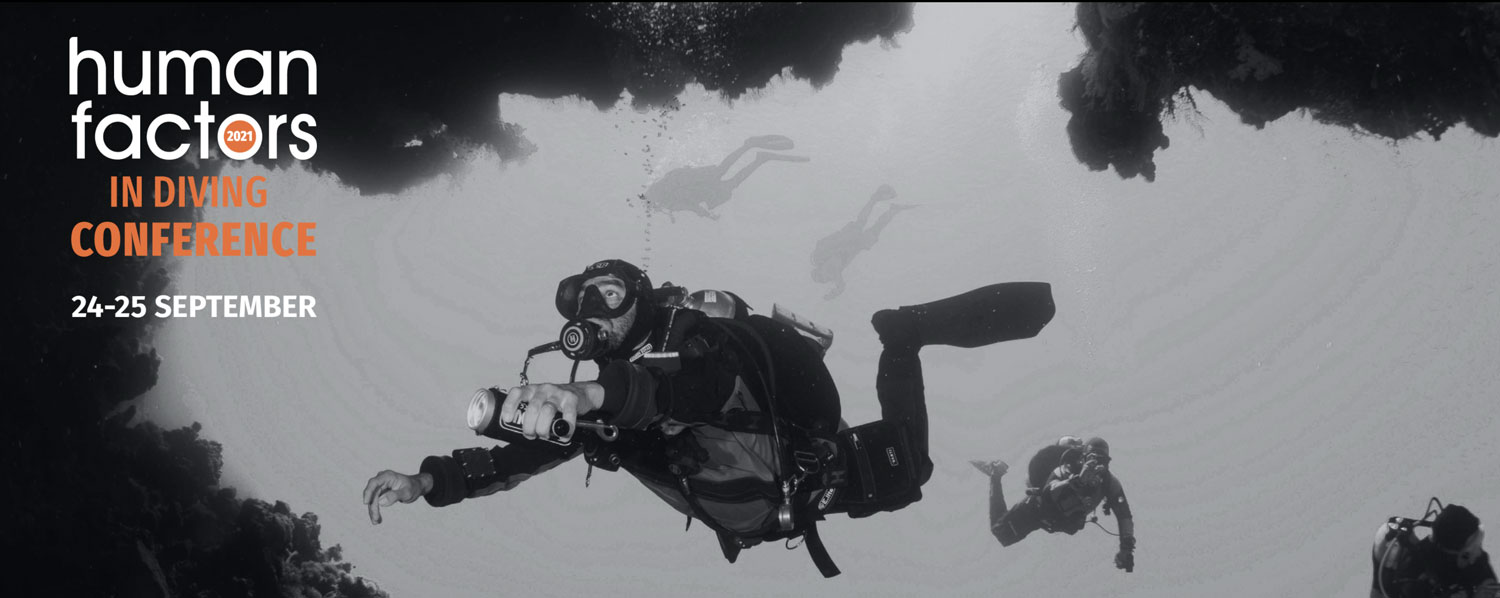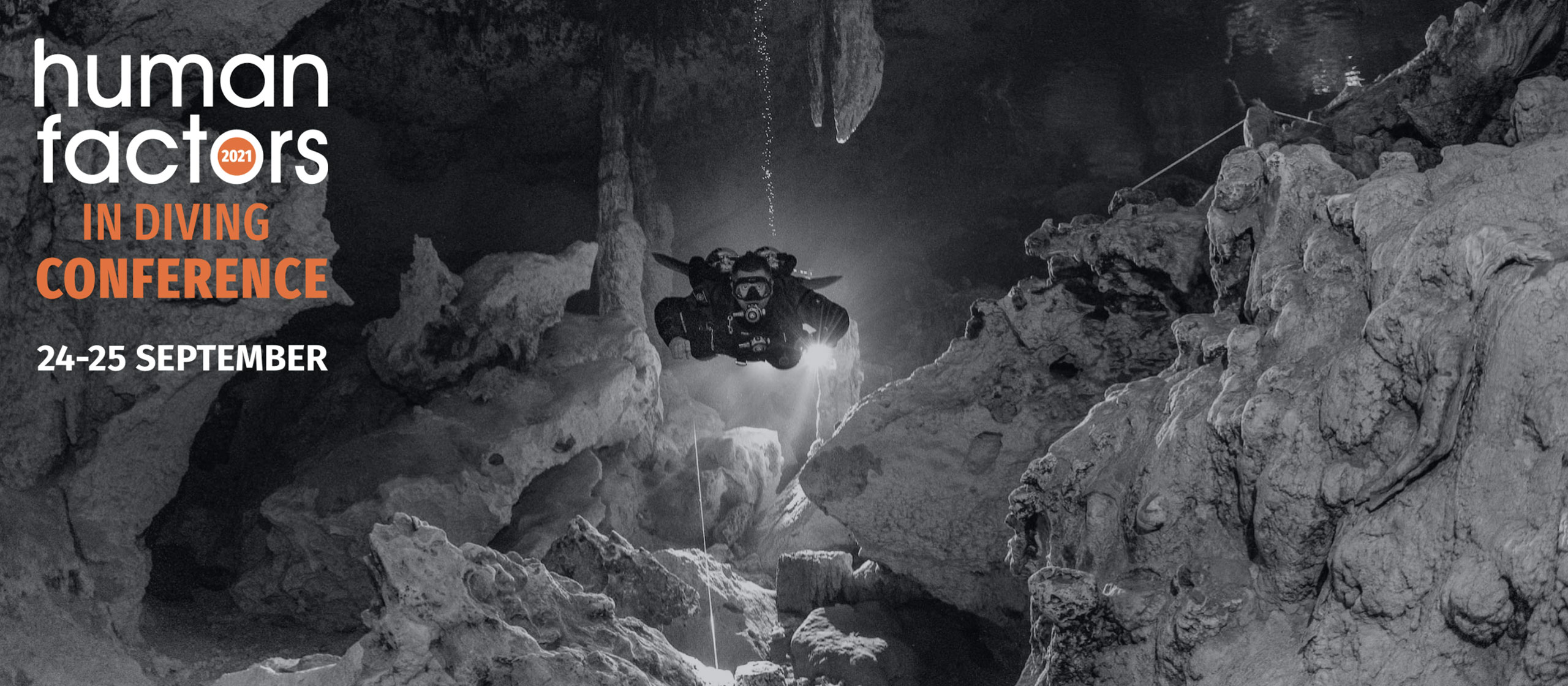Dive Travels
Lessons learnt at the first Human Factors in Diving Conference
On Sept. 24th-25th 2021 I had the opportunity to attend a great event: the first Human Factors in diving conference: over 30 speakers participating from all over the world, and a truly global online audience comprising of recreational and technical divers, instructors, dive masters and vocational divers.
The event was organised by British Human Factors expert and technical diver Gareth Lock in collaboration with DAN Europe and GUE. The main purpose of the congress was to provide an in-depth look at what Human Factors are about and how their science can help improve diving safety and performance, both for individuals and for teams, similarly to what happens in high-risk contexts: various industries, aviation, healthcare, including veterinary, etc.
Lock is a retired senior officer Navigator from the British Royal Air Force, and founder of The Human Diver, which offers in-person and online courses and webinars.
What are Human Factors in the first place? Basically, it’s about better understanding how people interact with technology, with other people, and with the environment. The final goal being to make it easier to do the right thing, and harder to do the wrong thing.

I am persuaded that Human Factors are also present in many everyday life situations, often acting as the missing link in the chain, participating as a decisive turning point or sometimes as an indifferent factor in a set of eventualities.
The two quotes which have definitely impressed me during the conference are: “blame is the enemy of safety” and “error is just a symptom, violation is not the cause”.
Starting from this point, Lock introduced two fundamental aspects: psychological safety and the Just Culture concepts.
As a medical doctor I really appreciated the talk from Dr Simon Mitchell, anaesthesiologist, tech diver and editor of Diving and Hyperbaric Medicine, who described Human Factors as the most important topic for modern sports diving.
A noticeable and unusual lecture in my opinion was given by Diane Chadwick-Jones, the former head of safety culture for British Petroleum, as she related about changes in the company culture within British Petroleum following the Deepwater Horizon disaster.

As a Diving Medical Officer myself, working for the DAN Europe Emergency Hotline, I particularly enjoyed the talk from Frauke Tillmans (Director of Research at DAN America) and the one from Laura Marroni (Executive vice president of DAN Europe). They introduced the audience to the DAN Incident Reporting System (DIRS), how it started and where it is headed, pointing out that voluntary feedbacks on incident and near misses can be usefully shared and, above all, they can provide tremendous opportunities to learn from others people’s experiences. Some real cases scenarios were provided, in order to shed more light on what practically happens when a dive emergency occurs.
The clinical psychologist and diving instructor Laura Walton interestingly focused her talk on stress, anxiety and panic, explaining the physiological and organic triggers, and highlighting the importance of building awareness about factors involved in panic or pre-panic behaviours, with the main collective purpose being prevention.
Other emblematic talks were delivered by commercial diver JP Le Fevre, who showed how Human Factors can influence the outcome in the singular environment of saturation diving, and how they have been important to avoid a serious undesired event during an accident in the North Sea back in 2016. There was also one by Dr. Dave Conlin, Chief and Director of a team of underwater archeologists with the US National Park Service, who is well versed in open circuit, closed circuit and surface-supplied diving, and talked about his personal experience and perspective dealing with a government accident investigation and the bureaucracy surrounding it.
Are you interested in Human Factors, but missed the conference? You can still listen to the conference recordings! Check them out here.
Further readings:
How to Improve Your Diving Safety and Performance
About the author
Lara Lambiase is an avid diver who lives and works in Rome. She is a Medical Doctor specialised in Infectious Diseases, and Diving and Hyperbaric Medicine. Since 2016 she is one of the dive docs on call at the 24/7 DAN Europe Medical Hotline.


